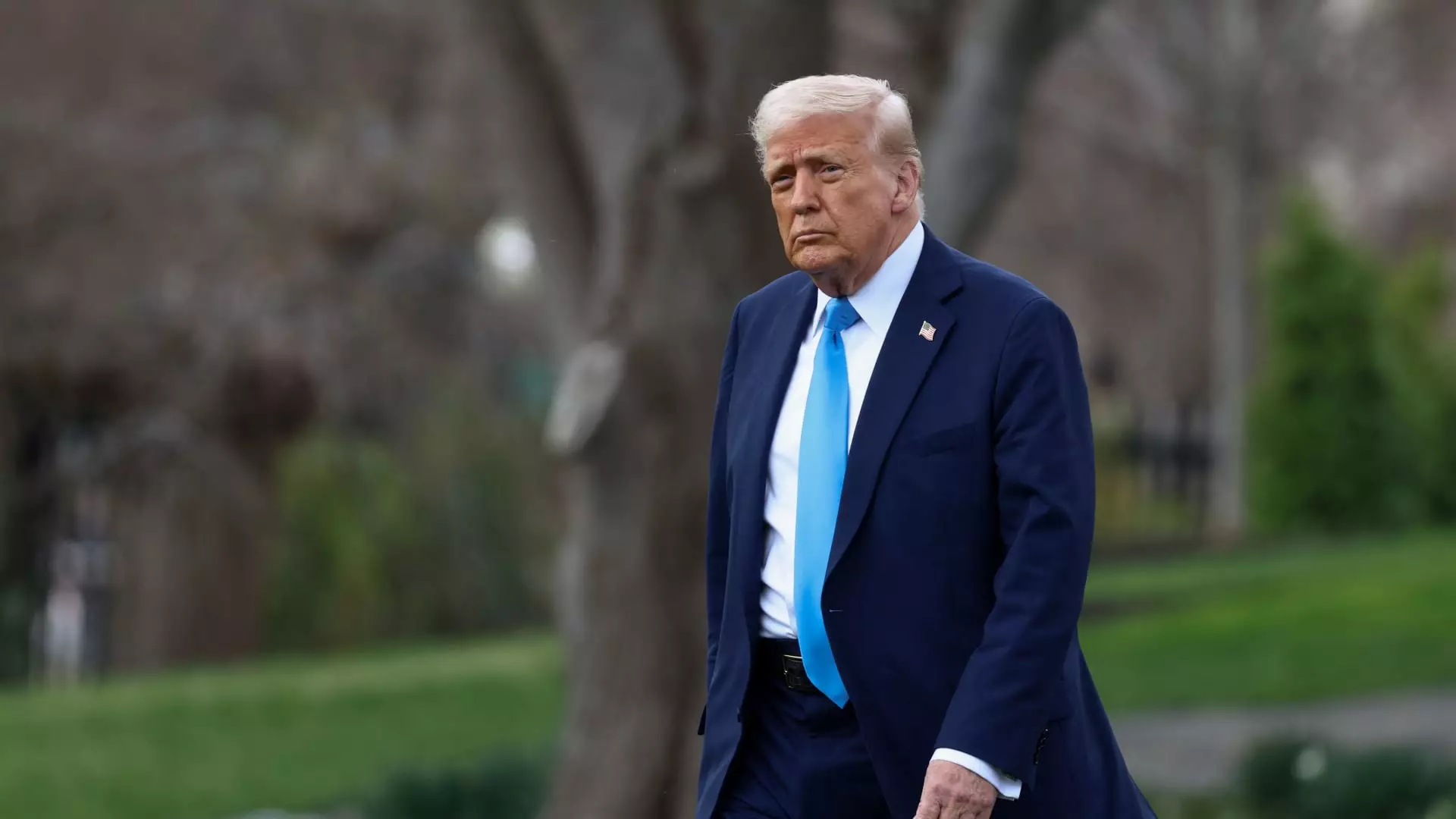As tensions soar across the international stage, former President Donald Trump’s recent actions and comments have not only created confusion but also underscored the fundamental flaws in his approach to foreign affairs. The thin veneer of tough talk often disguises a vacuous strategy—one that prioritizes bombast over substance. In a world already fraught with discord, Trump’s readiness to brandish tariffs like a blunt weapon against Russia while simultaneously cozying up to its President, Vladimir Putin, only highlights a deeply flawed understanding of international relations.
The geopolitical chess game involving Russia, Ukraine, and the U.S. resembles a chaotic, unscripted drama. When Putin suggested a transitional government in Ukraine, Trump’s reaction—labeled as “very angry” and “pissed off”—reveals more than just frustration; it unveils a leader who feels threatened by dissent against a once-favored ally. Such emotional responses from a former president who once touted his foreign policy prowess lead one to question if he’s playing a game of chicken with global consequences.
The Contradiction of Tariffs and Threats
In an astonishing move that feels more akin to a theatrical gesture than serious policy-making, Trump proposed imposing a staggering 25% tariff on Russian oil should hostilities continue. The notion is buried under layers of irony; a former leader who once coined a “America First” slogan now threatens economic repercussions against a nation that has repeatedly disregarded international law and stability. These tariffs, his supposed response to Putin’s audacity, serve as breadcrumbs thrown to those who still believe in Trump’s tough-guy persona, but they fail to address the systemic issues at play.
A truly diplomatic approach doesn’t hinge on threats of tariffs and military actions but instead requires a nuanced understanding of the intricate web of alliances and enmities. The easier path is often the most destructive. By relying on punitive measures and bellicose rhetoric, Trump is missing an opportunity to renew essential dialogues aimed at conflict resolution. By antagonizing nations that require strategic cooperation to promote peace, he risks alienating potential allies and further complicating issues that need addressing through debate, not disdain.
Mischaracterizations Litter the Landscape
Trump’s previous commentary regarding Zelenskyy was equally astounding. Accusing the Ukrainian leader of dictatorship is not just a wild mischaracterization but also an affront to the reality that Ukraine is fighting for its very existence against an aggressor. Statements like these seek to paint Allies in unfavorable lights while giving a pass to authoritarian regimes. Such missteps only serve to galvanize skepticism toward U.S. foreign policy and signal a dereliction of leadership that should stand firmly with democracies worldwide.
The former president’s proclivity for framing leaders as “good” or “bad” based on personal relationships, rather than political realities, fundamentally undermines the sophisticated diplomacy necessary in today’s world. His interactions create a dangerous precedent where personal feelings cloud judgment, often to the detriment of international stability. When the credibility of a Western ally like Zelenskyy is questioned, it can embolden adversaries and discredit efforts to promote democracy in countries at risk.
Ineffective Strategy Towards Iran
Trump’s handling of Iran tells a similar story. With threats of “bombing” and “secondary tariffs,” the narrative of aggression and confrontation may play well with certain domestic audiences, but it falls short of yielding any constructive outcomes. The U.S. must strive for stability in the Middle East, rather than fostering further conflict. Engaging in dialogue—despite ongoing tensions—produces better long-term results. The ultimatum-laden diplomacy Trump favors only serves to inflate hostility and nourish cycles of violence.
By characterizing negotiations through a lens of aggression, Trump not only limits the scope of potential agreements but also overlooks opportunities for peaceful resolutions. His inability to foster a constructive dialogue with countries like Iran mirrors a broader pattern of mismanagement that could cost both lives and livelihoods globally.
In a world where diplomacy requires a delicate touch and a keen sense of empathy, the cacophony of Trump’s comments does little to inspire confidence. Only time will tell if future leaders will learn from his tumultuous tenure the importance of a balanced, rational, and deeply principled foreign policy approach.

